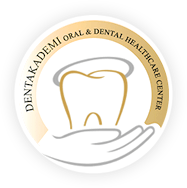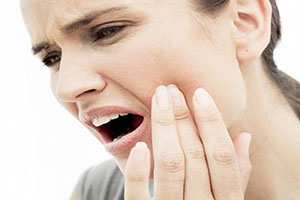What is the importance of the jaw joint in oral and dental health?
All structures in the facial and oral regions are vital because important functions such as speaking, chewing, swallowing, and breathing are performed in this area. The jaw joint plays a critical role in these important functions.
Considering that the jaw joint is the most crucial part of the chewing process, which is composed of chewing muscles, teeth, salivary glands, cheeks, and tongue, any damage to the jaw joint will also affect all other parts of the system. Therefore, it is essential to see a specialist dentist for jaw joint treatment if there is a felt problem or concern.
What are the causes of jaw joint disorders?
Jaw joint disorders and pain can be diverse. In the past, it was commonly thought that bite problems were effective in jaw joint disorders. However, research has shown that bite problems have a relatively low impact, around 10-15%, on jaw joint disorders, and correcting bite problems is not a very useful method for jaw joint disorder treatment.
Orthodontic and restorative treatments can be performed for patients with bite problems, but it should not be forgotten that these treatments are not for jaw joint therapy but for correcting bite problems. Therefore, patients who will receive jaw joint treatment should avoid irreversible treatments and should be careful to have their treatment performed by a physician with expertise in jaw joint therapy.
One of the leading causes of jaw joint disorders is trauma resulting from various conditions. These traumas can be direct injuries to the face and jaw area and can cause damage to the hard and soft tissues in that area and even fractures in the jaw.
In addition to severe traumas, various types of micro traumas can also cause jaw joint disorders. Bruxism, teeth grinding, and clenching are among the most common micro traumas. In addition to dental and oral problems, stress can also affect muscles and frequently lead to muscle spasms, which can trigger jaw joint disorders due to bruxism.
What are the symptoms of jaw joint disorders?
The symptoms indicating jaw joint disorders can manifest themselves in different ways. One of the most common symptoms is sound coming from the jaw joint, which can be a clicking, grinding, or rubbing sound.
Another frequently encountered problem is difficulty opening the mouth, and patients may not be able to open their mouths entirely. Pain is one of the most critical symptoms.
Due to pain in the jaw joint region, patients may not be able to open their mouths, and jaw joint disorders can cause discomfort in the ear area. The reason for this is that the jaw joint is an articulated joint located just in front of the ear. Ear pain, ringing in the ears, and dizziness are some of the symptoms caused by jaw joint disorders.
What age and gender are more likely to experience jaw joint pain?
Jaw joint discomfort can occur at any age. However, research shows that it is most commonly seen between the ages of 20 and 45, and it is reported to be slightly more common in women.
Are there any measures that can be taken to prevent jaw joint pain?
It is possible to protect against the negative effects that problems like bruxism, which we call micro-trauma, can have on oral and dental health through early diagnosis and treatment. After an examination by a dentist with expertise in jaw joint problems, potential issues can be prevented through treatment and the use of intraoral appliances.
What are the treatment methods for jaw joint problems?
Most people with jaw joint discomfort believe that it is not related to oral and dental health. However, examination and treatment for jaw joint problems are carried out by dentists.
Depending on the diagnosis made by a specialist dentist, pharmacological (medication) treatments can be applied for the treatment of jaw joint disorders. Additionally, auxiliary treatment devices placed in the mouth to prevent the harm caused by teeth grinding during sleep, which we call intraoral appliances, can also be used. Physiotherapy methods are also among the methods used for the treatment of these disorders.
If there are cysts, tumors, or growth abnormalities that need to be cleaned in the area and if there is severe pain that affects the patient’s social life, surgical treatments may also be necessary.
In cases of disc slippage and dislocation caused by various factors, successful jaw joint rehabilitation can be achieved without the need for surgery, with intraoral appliance treatment providing an 80-85% success rate.
What should we look for in the clinic we go to for treatment?
Patients should take the symptoms of jaw joint disorders seriously. Specialists dealing with jaw joint problems should have the knowledge to collect and evaluate all patient data, and make a differential diagnosis from other disorders.
Patients who feel the symptoms and negative effects of jaw joint disorders should pay attention to whether the doctor they will be examined by is a specialist in jaw joint disorders. Although there is currently no specific field of study for jaw joint disorders in universities, doctors who work on jaw joint disorders specialize through special training.
Jaw joint treatment is performed at our Istanbul Dentakademi Oral and Dental Health Center.



